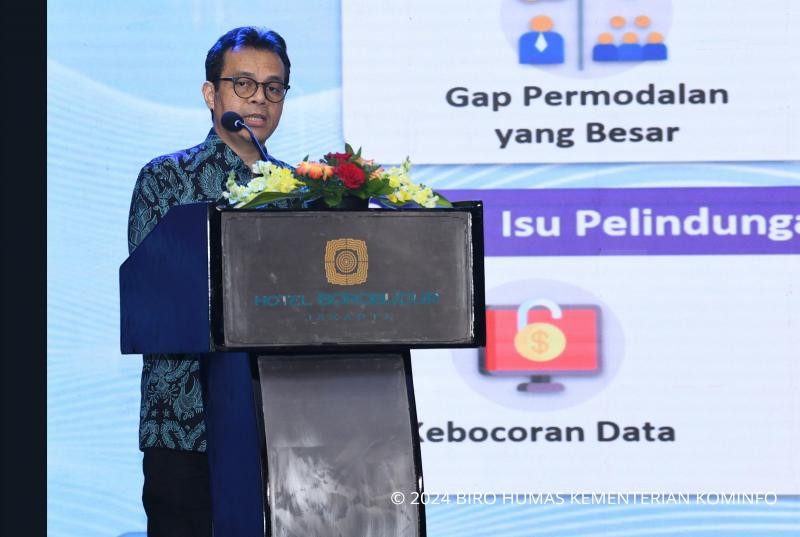


The presence of the digital economy also offers convenience and opportunities for all social groups in society, including vulnerable groups, to access the benefits of the digital economy, financial inclusion, education, and health from digital economy-based platforms.
Indonesia's digital economy will continue to grow, according to a study by the National ICT Council, it is estimated that by 2024 it will contribute up to 4.66% of Indonesia's Gross Domestic Product (GDP). This growth is driven by various industrial sectors, especially the e-commerce, transportation and food, online travel, and online media sectors.
Quoted from the Ministry of Communication and Informatics press release, Deputy Minister of Communication and Information Nezar Patria stated that the presence of the digital economy creates various new job opportunities estimated to reach an additional 3.7 million jobs by 2025. "The presence of the digital economy has the potential to create 3.7 million additional jobs in 2025," he said during the Digital Economy Dialogue: Social Impact & Adoption in the Digital Economy at Hotel Borobudur, Central Jakarta, on Wednesday (03/27/2024).
According to Deputy Minister Nezar Patria, the creation of new jobs is important in achieving the target of Indonesia Emas 2045 Vision. In addition, the presence of the digital economy also offers convenience and opportunities for all social groups in society, including vulnerable groups, to access the benefits of the digital economy, financial inclusion, education, and health from digital economy-based platforms.
"One form can be seen from the impact of the digital economy on empowering MSMEs, including opening market access, encouraging innovation, improving quality, to operational efficiency of MSMEs," he explained.
However, the Deputy Minister of Communication and Information sees various issues in the digital economy ecosystem that need to be anticipated, namely human capital development, business competition, and personal data protection.
According to Deputy Minister Nezar Patria, human capital development issues include limitations on digitally-skilled workers, job displacement, digital inclusion for vulnerable groups, and algorithm bias against vulnerable groups. As for business competition issues, they include large capital gaps, disparities in access to data, dependence on certain technologies, and the dominant position of foreign technology companies.
"The second issue regarding business competition, especially related to the emergence of fair level playing field issues due to the penetration of technology service provision by platforms from outside Indonesia," he emphasized.
Regarding personal data protection issues, the Deputy Minister of Communication and Information stated that the issue includes data breaches, algorithm utilization, massive data collection, cross-border data flows, and dark pattern phenomena.
"Dark pattern is a user interface display intentionally designed to hide, deceive, cheat, or even extort users for the benefit of one group," he explained.
To support the development of the digital economy ecosystem, Deputy Minister Nezar Patria hopes that the discussion can produce solutions to realize a digital economy that is solution-oriented, innovative, and adaptive.
"These three major pillars are issues that need to be discussed together not only to be anticipated but also to find solutions together," he concluded.
IN
Latest News from Wantiknas
Rate this article: